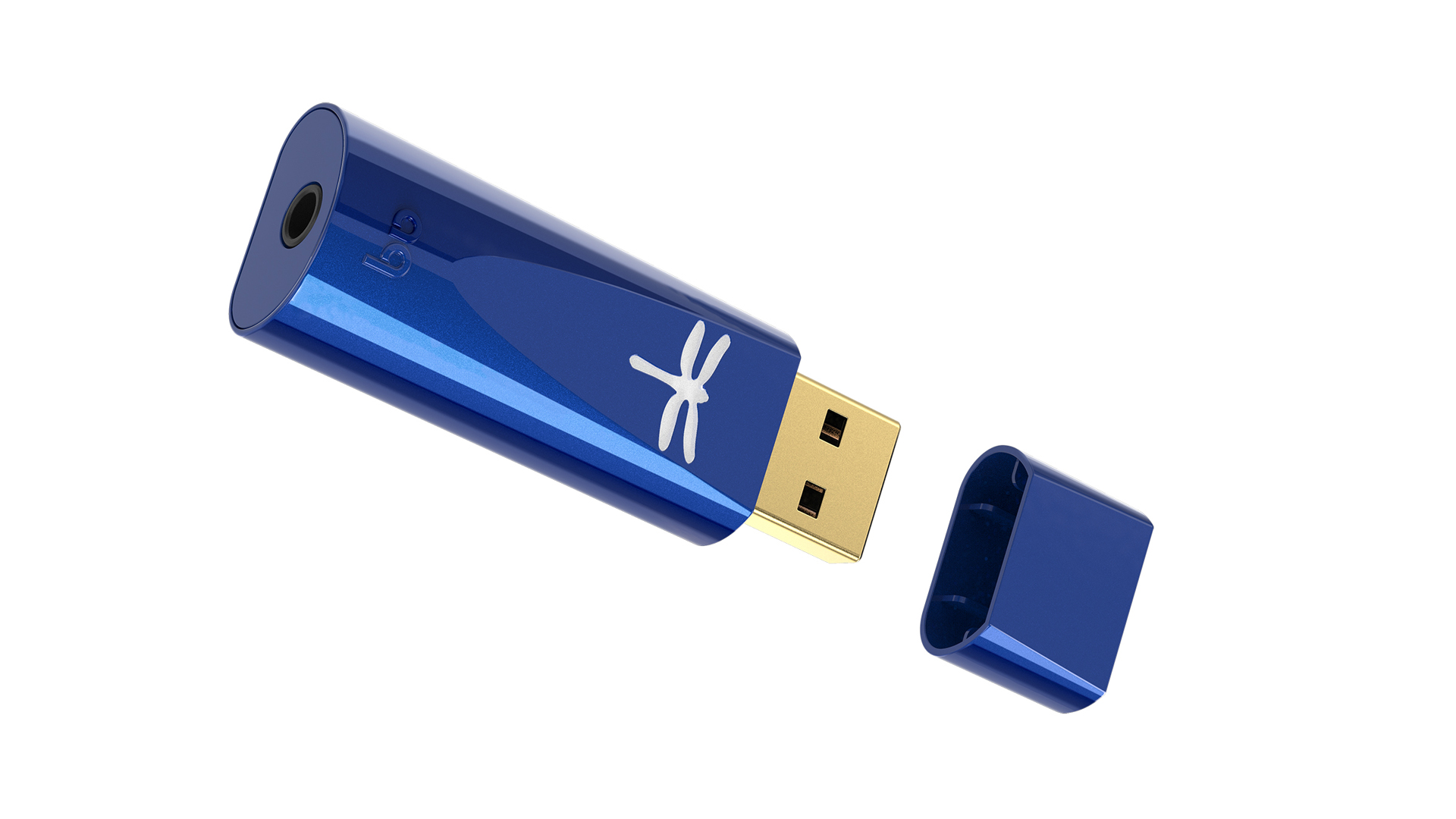What Hi-Fi? Verdict
Price has always been an attractive feature of AudioQuest’s DragonFly DACs, but the flagship Cobalt justifies its heftier tag
Pros
- +
Clean and precise presentation
- +
Spot on timing and dynamics
- +
Wide file support
Cons
- -
Not the most relaxed nature
- -
DragonTail adaptor fits poorly
Why you can trust What Hi-Fi?
Once upon a time, the only instance in which we’d have paid this kind of money for a USB stick was if we were being blackmailed. But then along came the AudioQuest DragonFly Cobalt USB DAC.
The Cobalt enters the market at a new premium price point for the company’s range of portable digital-to-analogue converters, but it backs up its asking price with the clearest, tidiest and most dynamic presentation we’ve heard from a unit this small.
Build
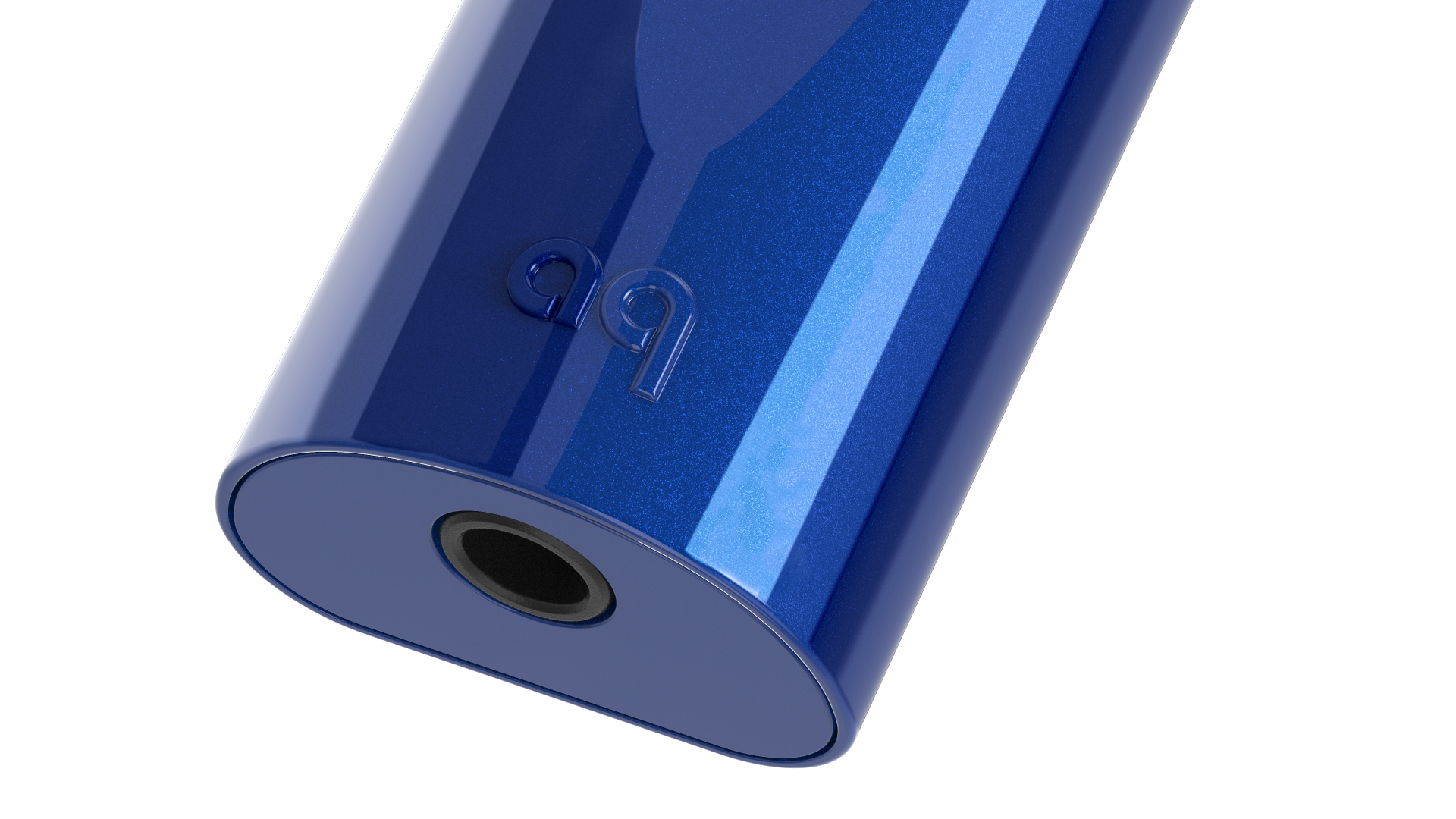
The Cobalt is the first DragonFly to spread its wings since 2015, when AudioQuest introduced its Black and Red models and with them Android and iOS smartphone compatibility. In terms of fundamental functionality, we’re pleased to report little has changed since then.
These are products whose beauty is born of their simplicity, and whose plug-in-and-play approach to cleaning up the sound from your computer, or (with the included dongle) a smartphone or tablet, is much of the allure. But that isn’t to say AudioQuest has simply repackaged its cheaper DACs in a different coloured, slightly smoother edged new chassis.
Features
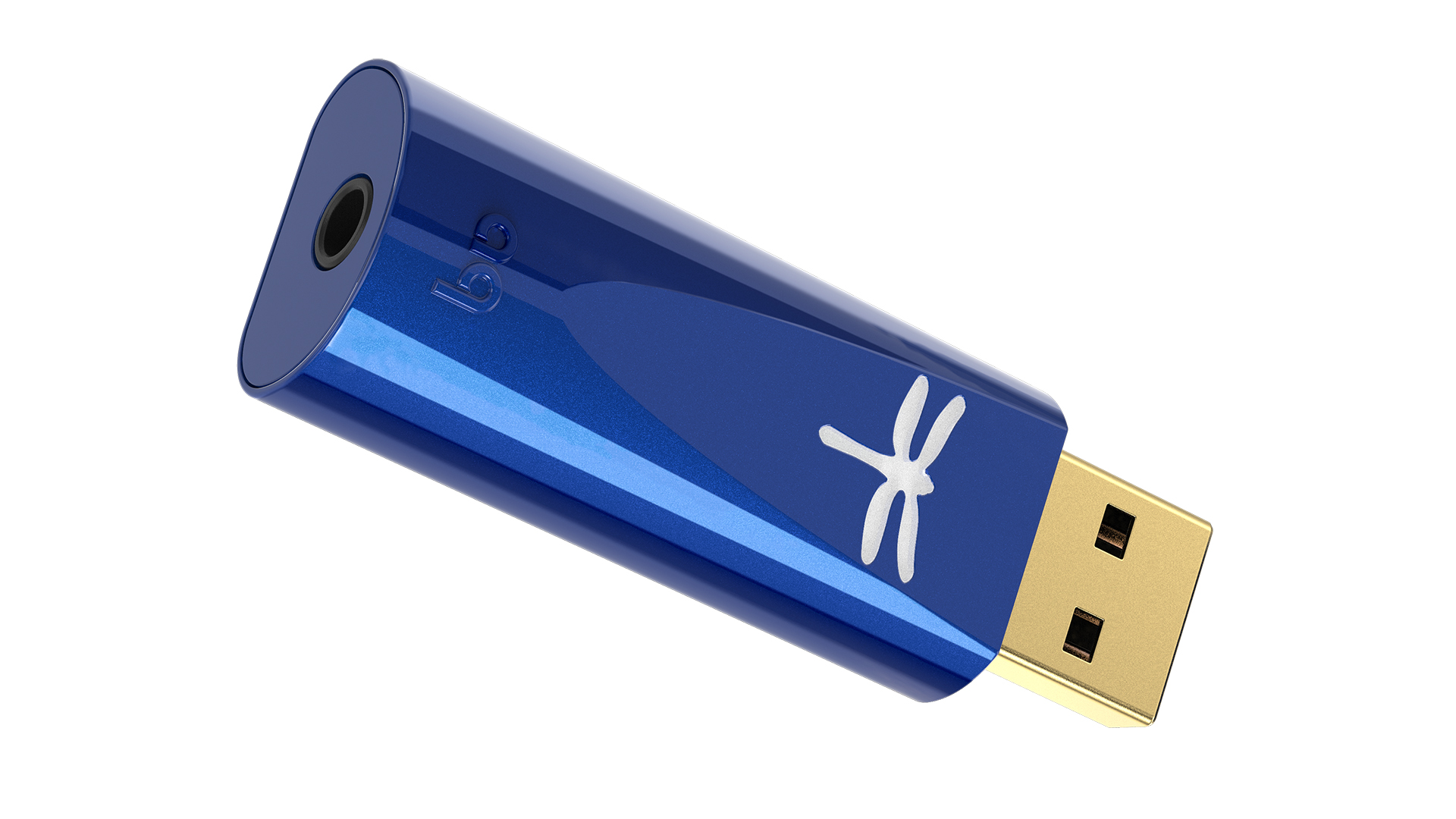
There are elements shared with the former What Hi-Fi? Award-winning DragonFly Red, including the 2.1v headphone output, bit-perfect digital volume control and MQA renderer, but there have also been a number of significant upgrades.
It begins with a new, more advanced ESS ES9038Q2M DAC chip, with which AudioQuest promises not only a clearer but more natural sound, while the PIC32MX274 microprocessor draws less current and increases processing speed by 33 per cent. Improved power supply filtering, meanwhile, is said to increase immunity to wi-fi, Bluetooth and cellular noise.
There are a couple of practical improvements too, namely the 10 per cent smaller enclosure and included DragonTail USB-A (female) to USB-C (male) adaptor for use with the growing number of electronics with connectivity for the latter.
The latest hi-fi, home cinema and tech news, reviews, buying advice and deals, direct to your inbox.
Our only reservation is with the quality of the DragonTail adaptor. It struggles to remain connected to any of the phones we try it with, a combination of loose fitting and the weight of the Cobalt dragging it out every time we move.
Sound
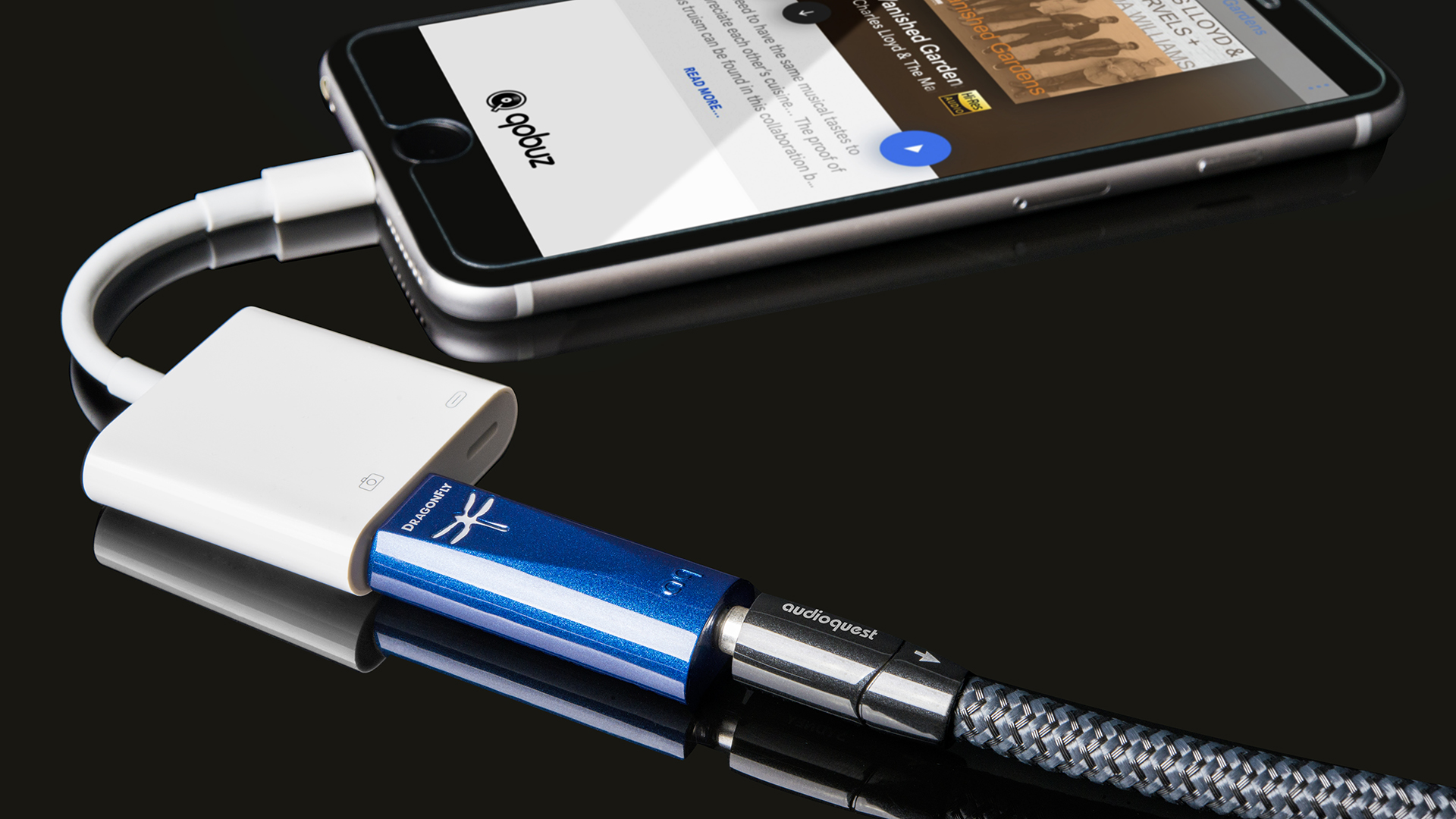
The most substantial upgrade, though, is only evident when you plug the DragonFly Cobalt in; it’s in the performance.
Once attached to your laptop or smartphone, and selected as means of audio output, the DAC’s LED will shine one of six colours to indicate the sampling rate: red for standby, green for 44.1kHz, blue for 48kHz, yellow for 88.2 kHz, light blue for 96kHz or purple when decoding MQA.
The Cobalt does wonders in cleaning up our laptop’s performance, no matter what kind of file we feed it or whether it’s streaming from YouTube, Spotify, Tidal or playing from our own hi-res library.
AudioQuest claims its new DAC ‘strips away fuzz and fog that weren’t even noticeable until removed’, and we’d have to agree. It is such an incredibly precise rendering that we almost feel duty-bound to play our highest-resolution recordings through it.
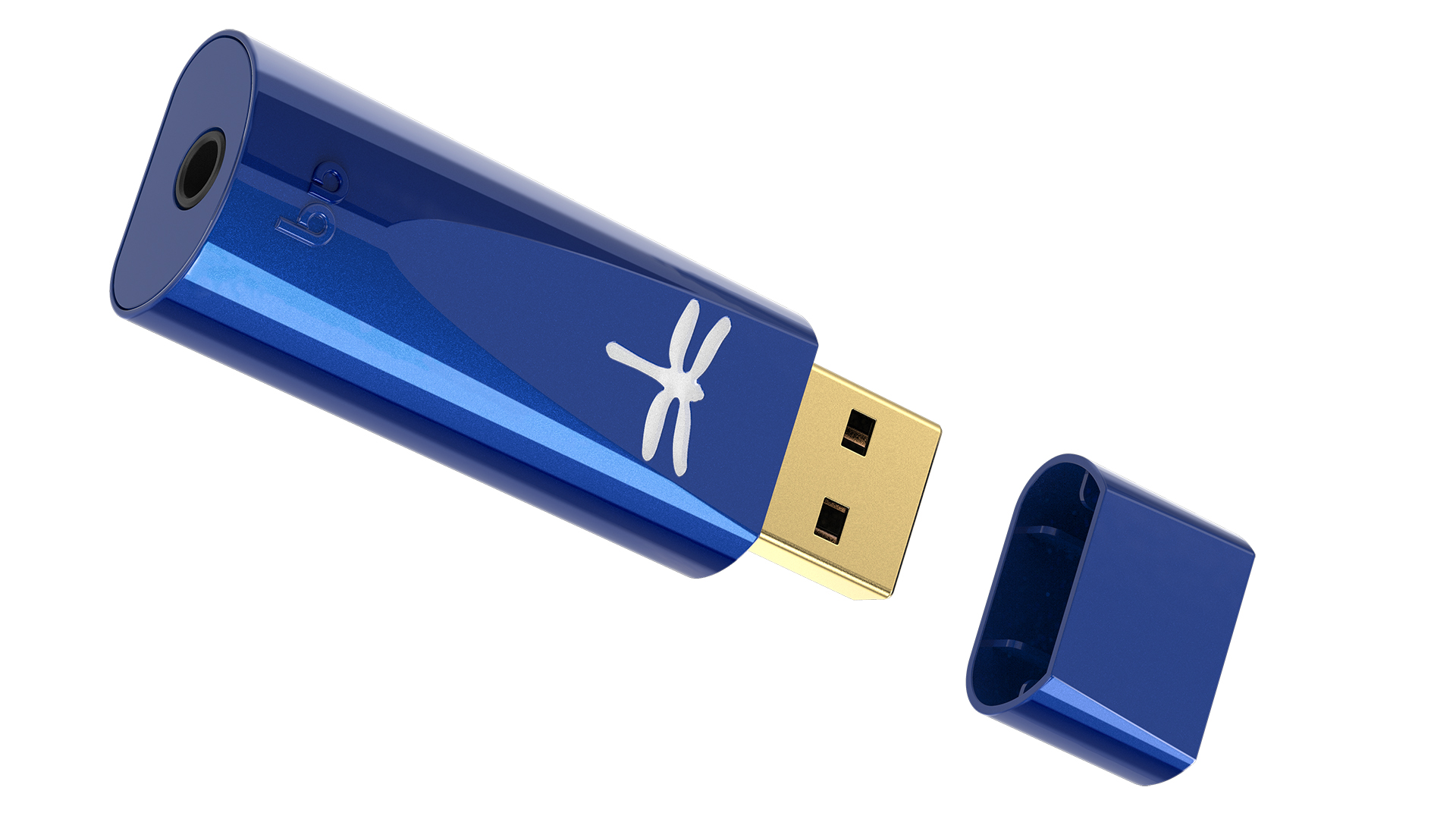
Resolution Up to 24-bit/96kHz
Output 2.1v
MQA rendering Yes
DragonTail Adapter Yes, included
Dimensions (hwd) 1.2 x 1.9 x 5.7cm
Lines are indelibly drawn round the edges of each instrument, with granular detail on offer to complement the cleanliness and military precision. The Cobalt isn’t necessarily concerned with polishing your music, only the lens through which it can be seen: bedroom recordings can still sound intimately lo-fi, purposefully screeching treble remains uncensored and grisly riffs still drag their knuckles along the floor.
You could spend your time analysing the music if you like, the Cobalt makes that easy with its wide-open soundstage and impressive clarity, but AudioQuest has not lost itself entirely in the detail, offering still a keen sense of rhythm and expressive dynamic range.
In both senses, there is measurable progress. Timing is greatly improved, with beats locking in like puzzle pieces, so much so that it can sometimes leave the DragonFly Red feeling a tad lazy. The Cobalt’s hard work is also heard as it belts out grand dynamic shifts before donning its reading glasses to contour those more diminutive quivers.
The only reason some people might be put off is that the DragonFly Cobalt is a serious performer. It improves on almost every aspect of its older sibling’s five-star presentation, but with that added insight and maturity comes a slight loss of the fluidity that made the Red sound so human.
That doesn’t counteract any of the sonic improvements you’re getting for your premium outlay, but some may favour the Red’s more relaxed temperament.
Verdict
Our only real complaint is nothing to do with the sound, only the quality of the DragonTail adaptor. However, the sonic return is such that those wishing to use the Cobalt with their USB-C smartphone should still get one and fork out for a new adaptor instead.
If you’re looking to make the next step up in desktop, or even mobile, sound and the asking price is within reach, the Cobalt represents something of a no-brainer.
Review published: 2019. Review updated: November 2024.
SCORES
- Sound 5
- Features 4
- Build 5
MORE:
The best DACs you can buy
Read our AudioQuest DragonFly Red review
Read our AudioQuest DragonFly Black review
7 reasons why a DAC could be your music purchase of the year
What Hi-Fi?, founded in 1976, is the world's leading independent guide to buying and owning hi-fi and home entertainment products. Our comprehensive tests help you buy the very best for your money, with our advice sections giving you step-by-step information on how to get even more from your music and movies. Everything is tested by our dedicated team of in-house reviewers in our custom-built test rooms in London, Reading and Bath. Our coveted five-star rating and Awards are recognised all over the world as the ultimate seal of approval, so you can buy with absolute confidence.
